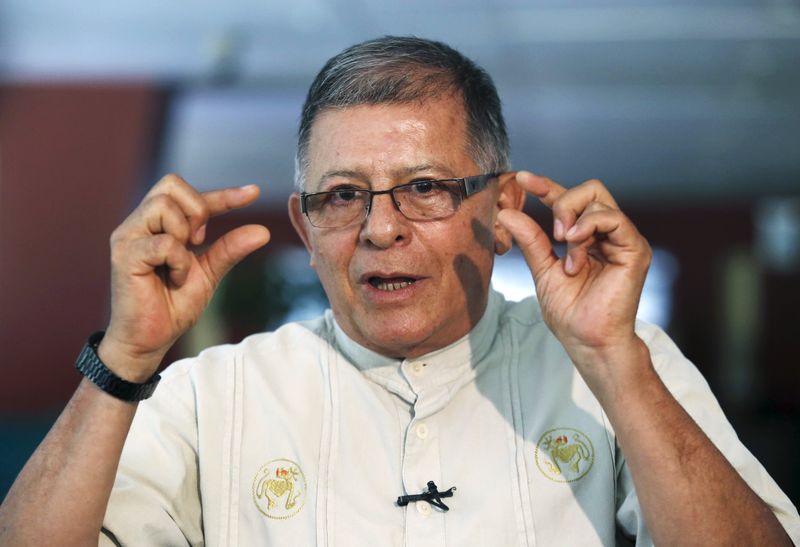By Nelson Acosta
HAVANA (Reuters) - Colombia's Marxist FARC rebels hinted on Tuesday they would extend a unilateral ceasefire when another round of peace talks open in Havana on Thursday, as long as the government did not renew air raids on their bases.
The Marxist Revolutionary Armed Forces of Colombia (FARC) and the government of President Juan Manuel Santos began the talks almost three years ago in Havana.
Despite the occasional incident, a relative peace has reigned in the South American country for the last month, where the last of the region's guerilla wars has gone on for half a century.
"I think the country can be at ease ... We have seen that in general the situation is going in the direction expected and can continue and improve in the future," Rodrigo Grande, a member of the FARC's negotiating team, told Reuters.
He said his organisation was still evaluating the situation on the ground in Colombia but expected "on Thursday we will have important news for all of us."
The group has declared temporary ceasefires during the past two Christmases and it halted combat operations during this year's elections, but has not called an indefinite ceasefire since the current talks began in November 2012.
President Santos ordered a halt to air raids against rebel camps in July, the first such action by Santos who has said there will be no ceasefire until a peace is signed.
The FARC grew out of a 1960s peasant movement demanding land reform and has been fighting successive governments ever since in a conflict that has killed more than 220,000 and created one of the world's highest internally displaced populations.

This peace process has gone further than previous attempts with partial deals already reached on land reform, the FARC's political participation and ending the illegal drugs trade. The sides are now in a delicate final phase as they debate the thorny issues of rebel demobilization, victim reparations and ending hostilities.